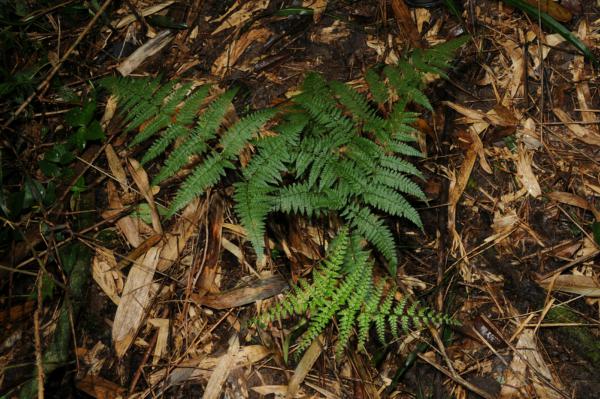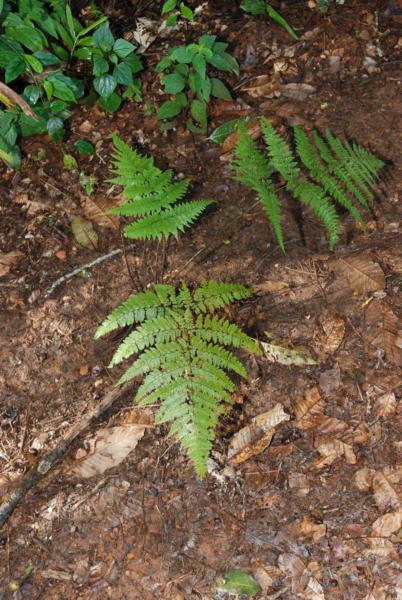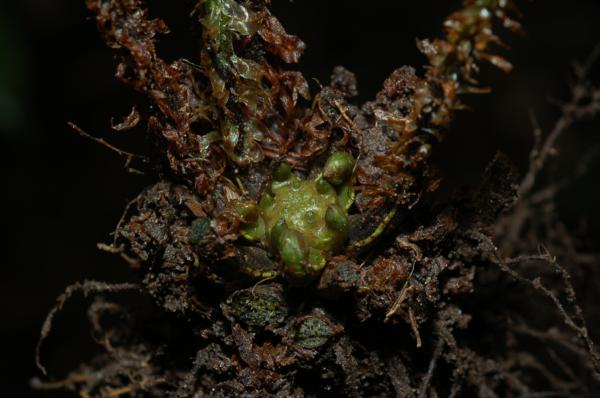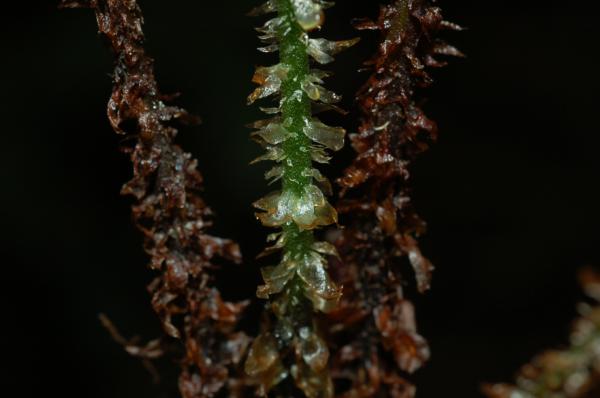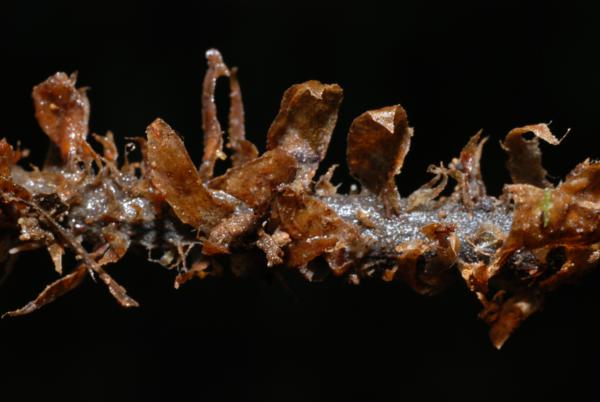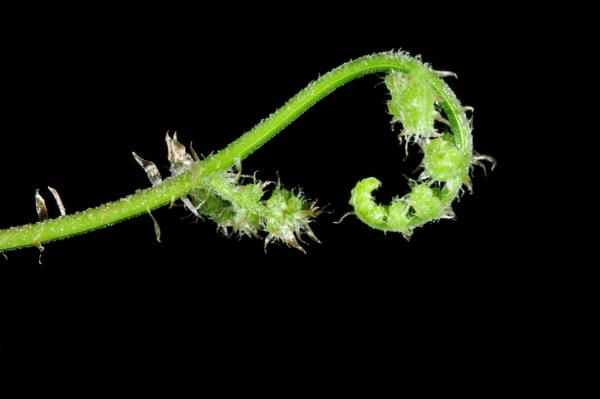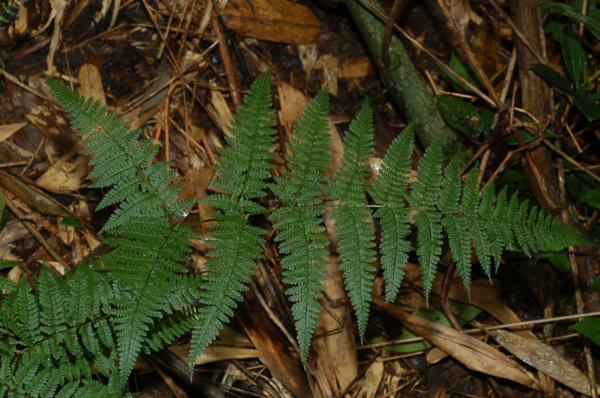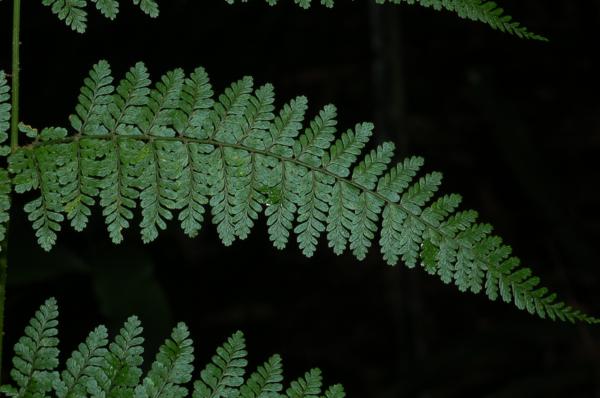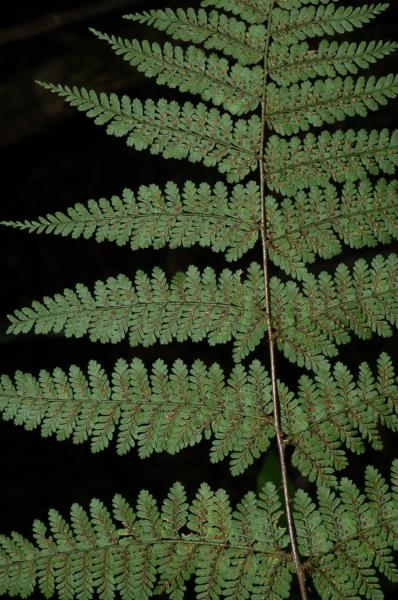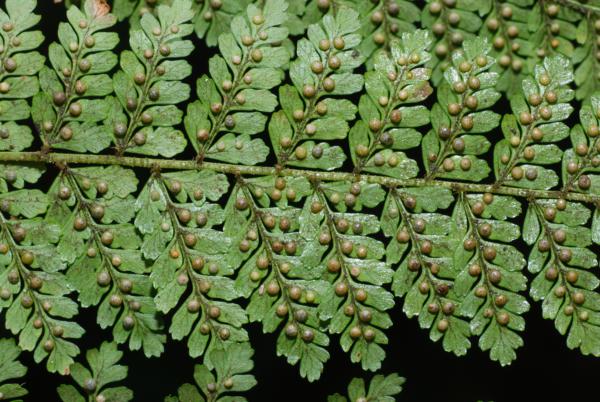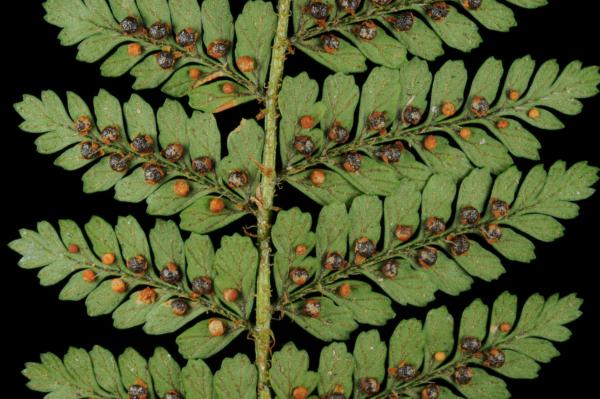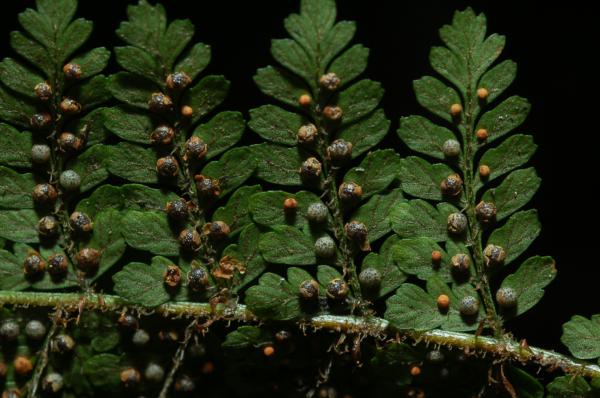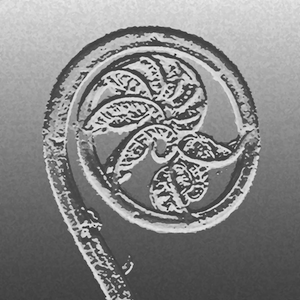
Peranema aspidioides (Blume) Mett.
Family
Dryopteridaceae
Nomenclature
Peranema aspidioides (Blume) Mett., Fil. Lechl. 2. 33. 1859. – Diacalpe aspidioides Blume, Enum. Pl. Javae.: 241. 1828; Bedd., Handb. Ferns Brit. India: 18, :f. 7. 1883; Tardieu & C.Chr., Fl. Indo-Chine 7(2): 292, f. 31.1 & 31.2. 1941; Holttum, Rev. Fl. Malaya ed. 1, 2: 481, f. 284. 1955 [‘1954’]; Holttum, Dansk Bot. Ark. 23: 237. 1965; Tagawa & K.Iwats., SouthE. Asian Stud. 5: 92. 1967; Tagawa & K.Iwats., Fl. Thailand 3: 330, f. 28.3–28.7. 1988; Boonkerd & Pollawatn, Pterid. Thailand: 202. 2000. – Cyathea aspidioides (Blume) Moritz, Syst. Verz.: 108. 1854.
Description
Rhizome short, ascending, covered with scales; scales linear-subtriangular, up to 10 by 2 mm, entire, glabrous, brown. Stipes dark stramineous to brown, deep brown on abaxial surface, polished, up to 40 cm long, scaly throughout. Laminae oblong-subdeltoid, about as long as stipe, tripinnate to quadripinnate; rachis minutely scaly throughout; pinnae more than 10 pairs, basal ones the largest, up to 20 by 12 cm, asymmetrically subtriangular, middle ones falcate, oblong-subtriangular, caudately acute at apex, broadly cuneate at base, about 15 by 7 cm; pinnules oblong-subdeltoid, acute at apex, unequally broadly caudate at subsessile base, 2–4 by 0.8–1.2 cm, posterior side of basal pinnae more than 10 cm in length; segments oblong to spathulate, oblique, sessile, subentire or pinnate in larger ones, rounded at apex, narrowly cuneate at base, about 7 by 3 mm in those of middle pinnae; pinnae papyraceous, green to deep green, sparsely hairy on veins, hairs articulated. Sori dorsal on veinlets, round; indusia glabrous , green when young, turning dark brown to black with age, about 0.7 mm diam.
Distribution in Thailand
NORTHERN: Mae Hong Son, Chiang Mai; NORTH-EASTERN: Loei; SOUTH-WESTERN: Prachuap Khiri Khan; CENTRAL: Nakhon Nayok; SOUTH-EASTERN: Chanthaburi; PENINSULAR: Chumphon, Ranong, Krabi, Nakhon Si Thammarat.
Distribution in Laos
Champasak.
Wider Distribution
Sri Lanka, N India, S China, Indochina and throughout Malesia.
Ecology
On humus-rich floor of dense forests at medium or high altitudes.
Proposed IUCN Conservation Assessment
Least Concern (LC). This species is widespread and not under any known threat.
Voucher specimens - Thailand
Middleton et al. 4895, Chiang Mai, Doi Inthanon National Park (E); Middleton et al. 4938, Chiang Mai, Doi Pha Ti Do (E); Middleton et al. 5143, Loei, Phu Luang Wildlife Sanctuary (E).
Habit
Habit
Crown of rhizome
Stipe bases
Scales on stipe
Unfurling frond
Frond
Upper surface of pinna
Lower surface of lamina
Lower surface of lamina
Sori with indusium disintegrating
Sori
Site hosted by the Royal Botanic Garden Edinburgh. Content managed by Stuart Lindsay, Gardens by the Bay, Singapore and David Middleton, Singapore Botanic Gardens. Last updated 24 January 2012
